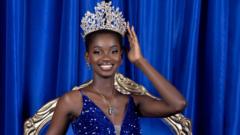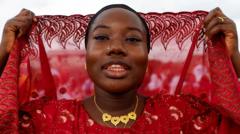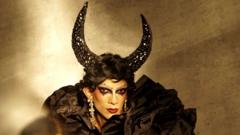*A significant shift in beauty standards emerges in Ivory Coast as the Miss Ivory Coast pageant bans wigs and extensions, encouraging contestants to embrace their natural hair and celebrate African beauty.*
**Natural Beauty on the Rise: The New Horizon for Beauty Pageants in Ivory Coast**

**Natural Beauty on the Rise: The New Horizon for Beauty Pageants in Ivory Coast**
*The Miss Ivory Coast pageant implements a wig ban, promoting authentic beauty and cultural pride.*
Long dominated by wigs and extensions, the beauty pageant scene in Ivory Coast, known for its vibrant and competitive culture, is undergoing a transformative change. The new guidelines now require contestants to showcase their natural hair during preliminary rounds, a move that aims to celebrate the authentic beauty of Ivorian women. Marlène-Kany Kouassi’s 2022 win as Miss Ivory Coast, wearing her natural hair, marked a pivotal moment, being only the second such instance in over sixty years.
Victor Yapobi, president of the Miss Ivory Coast organizing committee, emphasized the intent behind the new rule, asserting, “We want the candidates to be natural—whether with braids or straightened hair, it should be their own.” The prohibition of wigs and extensions aims to shift perceptions about beauty and promote a sense of pride among participants embracing their true selves.
Expanding on this revolutionary approach, the pageant has also adjusted its entry criteria, including an increase in maximum age to 28 and a reduction in the entrance fee, making the competition more accessible. Contestant Emmanuella Dali shared her enthusiasm about the reforms, expressing how the rule empowers her as an African woman, noting the confidence boost it offers despite the widespread custom of wig-wearing among contestants.
While many contestants welcome the change as an affirmation of self-identity, opinion remains divided. Some express concerns that the ban diminishes personal expression, as wigs have often been seen as an art form in their own right. Although the new policy resonates with a segment of the population, it has prompted apprehension among local hairdressers, as the predominant demand for wigs supports a lucrative hair industry estimated to be worth over $300 million annually.
Despite mixed reactions, the ban has ignited dialogues within Ivory Coast about beauty standards, potentially leading to a more inclusive understanding of self-expression through hair. With supporters celebrating the focus on natural beauty, critics highlight the cultural significance of wigs, serving as a protective style and a medium of creativity for many Ivorian women.
With the preliminary rounds in full swing, the impact of these new policies remains to be seen. As the contest gears up for its televised finale in June 2025 in Abidjan, observers keenly watch how these changes might reshape the future of beauty pageants in the country and impact broader societal standards regarding beauty and identity in West Africa.















